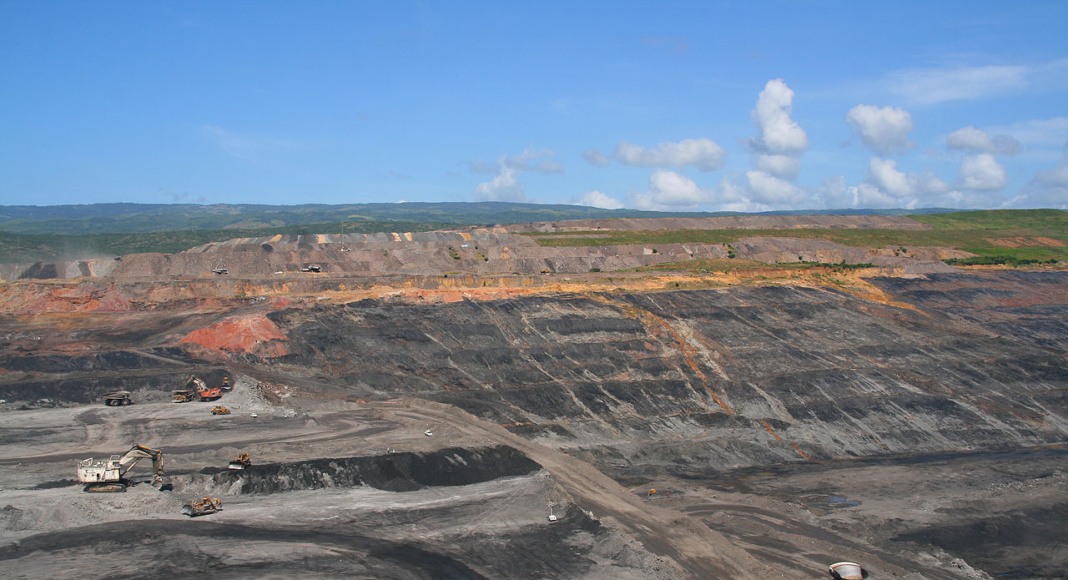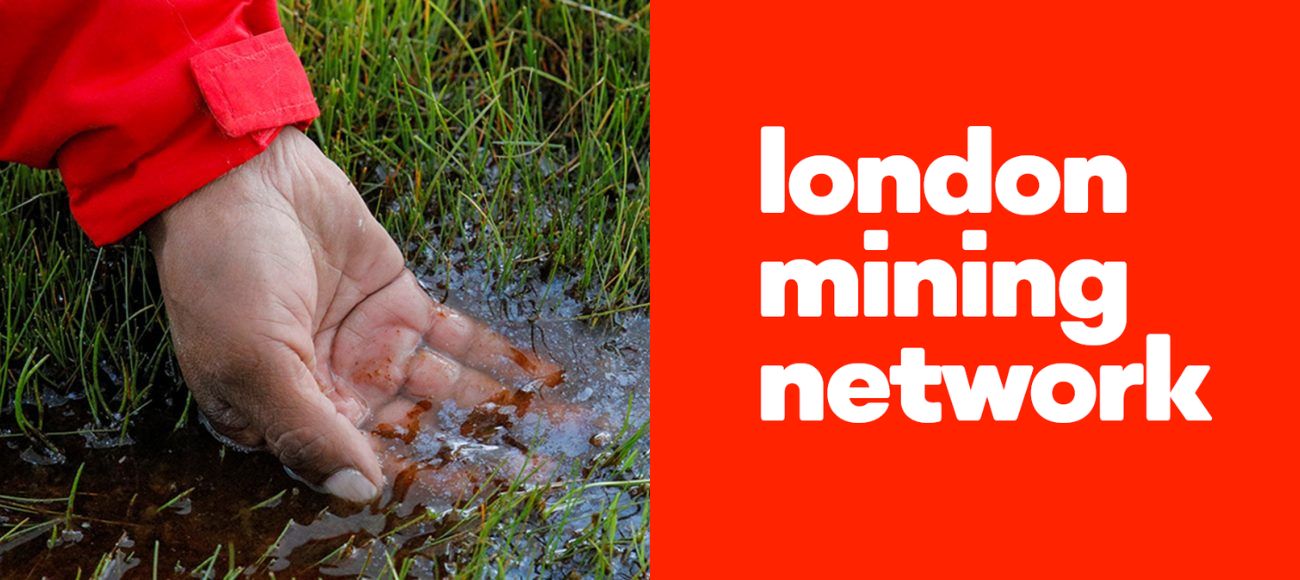This is the second post in the new London Mining Network blog, a partnership initiative between LAB and LMN. It contains a roundup of Latin America-related content from London Mining Network’s newsletter, with additional material supplied by LAB, researched and written by Tom Gatehouse.
Main image: El Cerrejón mine. Photo by Tanenhaus
Cerrejón’s ‘agreement’ with Wayúu community comes as news to them
Cerrejón, the operator of Latin America’s largest open-pit coalmine, located in Colombia’s northernmost department of La Guajira, recently announced that it had struck an ‘initial agreement’ with the Provincial Indigenous Reservation to ‘promote the development of this community in the coming years.’ The agreement included construction of a health centre and the planting of 248,000 trees.
‘This agreement demonstrates Cerrejón’s real commitment to partnership with the communities of La Guajira. We are listening and will do everything possible to maintain a constructive and proactive dialogue with communities to develop projects – all built through consensus – which improve the quality of life,’ said Luis Maralunda, Cerrejón’s vice president of communication and public affairs. ‘This is a new milestone in our long and growing relationship with community of Provincial.’
There was just one problem: this ‘agreement’ came as news to Provincial, who swiftly put out a press release denying its existence:
‘IT IS NOT TRUE that the company had reached a historic agreement or a sincere, open and good faith dialogue with the sector of the community of the Provincial Reservation who for years have used various legal actions to denounce the serious violations, abuses and outrages committed by this cheating and lying company owned by multinational mining companies BHP, Glencore and Anglo American.’
Provincial – an indigenous Wayúu community – pointed out that the negotiations had been conducted with the community governor Oscar Guariyu – chosen by non-indigenous rather than indigenous law – and his family, not with the wider community. Guariyu had opposed an application for legal protection the community filed with the Colombian Constitutional Court in 2018.
‘…we wonder how the same person who opposed the application for legal protection is in charge of “negotiating” and speaking publicly on behalf of the application for legal protection that he himself rejected?’ asked the press release.
The application denounced a whole host of impacts of Cerrejón, including the spreading of dangerous particulate materials, constant blasting in the area, and the fact that the mine operates 24 hours a day, seven days a week. In response, Cerrejón claimed to abide by the highest national and international standards on air and water quality and denied any responsibility for the negative impacts listed in the application, citing a lack of evidence.
But after commissioning a series of studies, the Constitutional Court found in favour of the community in December last year, ruling that ‘the community finds itself in a situation of grave risk’ due to a number of factors attributable to Cerrejón. It ordered Cerrejón to take urgent measures, including tighter controls on particulate emissions, cleaning up coal dust, and preventing contamination of local water sources.
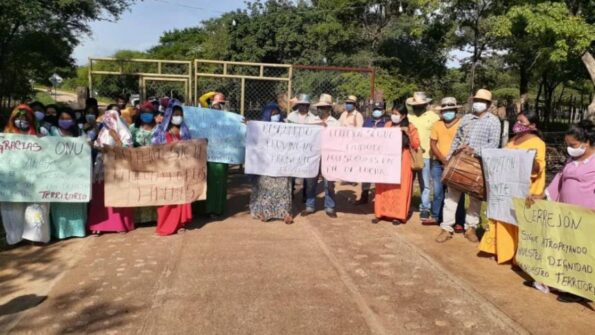
Provincial also sent a petition to the United Nations, which released a damning communiqué in September this year calling on Cerrejón to suspend its activities. David Boyd, the UN Special Rapporteur on Human Rights and the Environment, drew particular attention to how the mining activity at Cerrejón has made Provincial residents more vulnerable to Covid-19.
“The science is clear; people living in areas that have experienced higher levels of air pollution – such as that around the El Cerrejón mine – face increased risk of premature death from COVID-19,” he said.
The UN statement also criticised Cerrejón for not doing enough to implement the Constitutional Court ruling. But as the Provincial press release points out, Cerrejón has a history of judicial non-compliance, with last December’s ruling being the fourth since 2015. Cerrejón has failed to fully implement a single one.
While the rulings concern a range of abuses committed by Cerrejón, the issue most flagged up by the Court is the mine’s impact on the water of La Guajira, one of Colombia’s hottest and driest regions. Cerrejón consumes over 24 million litres of water every day, has dried, dammed or diverted 17 local water sources, while also pouring back wastewater contaminated with heavy metals and chemicals.
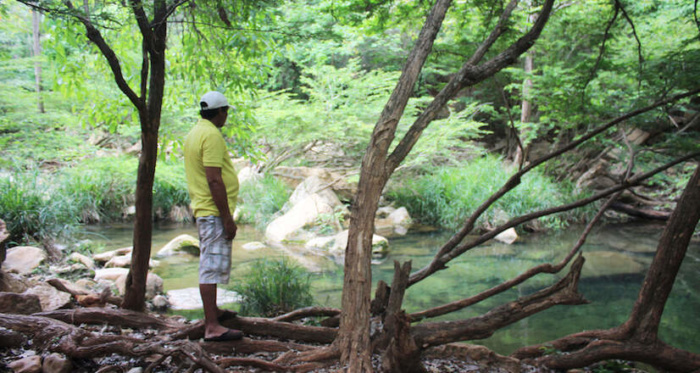
As a result, a major humanitarian crisis has been unfolding in La Guajira, with communities struggling to find enough food and water. Death rates of children under five from malnutrition were nearly six times the national rate in 2019, and the Wayúu are the worst affected. Thousands of Wayúu children are thought to have died of malnutrition in recent years.
The UK continues to import coal from Colombia – over a million tonnes in 2019 – much of which comes from Cerrejón. Cerrejón is owned by BHP, Glencore and Anglo American, all London-listed companies with revenues in the billions of dollars.
‘No Means No’: Chubut communities mobilise again
In the Argentine province of Chubut, located at the heart of Patagonia, tensions have been rising in recent weeks as the government attempts to rally support for a new ‘zoning’ proposal that would allow the mine operators to carry out an environmental impact study. This makes it a lot more likely that permits will be issued for exploiting ores in the central plateau region of the province, an area home to indigenous Mapuche-Tehuelce communities.
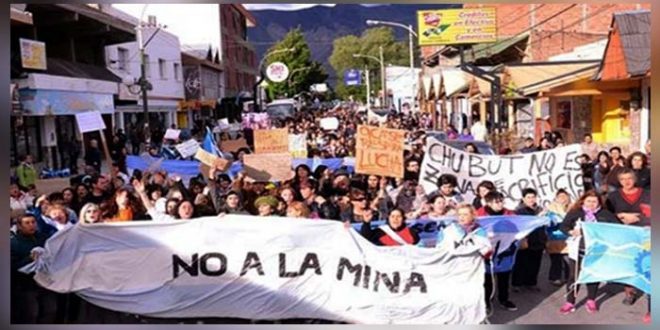
It also makes more likely the authorisation of the Navidad mine, which contains one of the largest untapped silver deposits in the world, as well as viable quantities of copper and lead. The owner, the Canadian company Pan American Silver, has been lobbying lawmakers for this change since 2010, when it acquired the project.

And Pan American Silver is not the only company trying to get a foothold in the province. In September, Patagonia Gold, – another Canadian company – acquired the Angela project, a mine which was closed in the early 1990s but which they hope to reopen for production on a large scale. And in May, Yamana Gold – also Canadian – gave a 40% stake in the Suyai gold project near the town of Esquel to an Argentine real estate and investment company run by Argentine businessmen Eduardo Elsztain and Saúl Zang.
Both Yamana and Patagonia Gold have London links: Yamana was admitted to the London Stock Exchange in October, while Patagonia was London-listed for years though is now listed on the Toronto Venture Exchange.
Yamana’s joint venture agreement with Elsztain and Zang will see the Argentines take charge of permits and managing ‘environmental, social and governance issues.’ Yamana hopes to seek ‘a re-engagement with the province and local community under the control and direction of Argentine parties with greater familiarity of and sensitivity to local ESG [Environmental, Social and Corporate Governance] issues’, with the aim of reviving a project which communities in Chubut hoped they had seen the back of.
In 2003, the people of Esquel defeated an earlier version of Suyai (then belonging to the American company Meridian Gold), organising under the slogan ‘¡No a la mina!’. Regular protests culminated in a referendum in which 82 per cent of voters rejected the mine, forcing Meridian to shelve its plans – a truly watershed victory which has served as an inspiration to other anti-mining movements elsewhere in Argentina and beyond the country’s borders.
Thanks largely to this social pressure, the provincial government that same year banned open pit mining and the use of cyanide in mineral processing. Nonetheless, the companies remained in the province, waiting for a fresh opportunity. In the context of the Covid-19 pandemic, it appears they think their time has come.
Not only have coronavirus restrictions made resistance more difficult, the pandemic threatens to devastate the local economy, which was in dire straits well before the first confirmed case of Covid-19 in Argentina.
Chubut is an oil province and has been badly hit by the collapse in global oil prices, with the government borrowing heavily to plug holes in its budget. The province is in debt to the tune of around $855 million, around $680 million of which was restructured in a deal with creditors last month.
And the situation has deteriorated since 2017, when former governor Mario Das Neves died in office and was replaced by his vice, current governor Mariano Arcioni. Arcioni was then elected in June 2019 having promised significant pay rises for public sector workers, but just two months later announced a return to a convoluted and unpopular system of ‘staggered pay’ that had been imposed during much of 2018.
This blatant duplicity, combined with more than a whiff of corruption – there have been a string of scandals in recent years – and Arcioni’s insistence on more than tripling his own salary, enraged many chubutenses, resulting in roadblocks, strikes, school occupations and protests across the province last year.
Arcioni sees mining as a means of relieving some of Chubut’s debt burden, while the companies are hoping that in the current economic climate the people of Chubut will be more receptive to their promises of employment and development than in the past.
But there are signs they have miscalculated. Opposition to mining in Chubut appears to be as strong as ever, with community assemblies having held meetings and organised marches in towns and cities across the province to protest the government plans, despite the coronavirus restrictions.
In October, the assemblies submitted a “Popular Initiative”, using a direct democracy mechanism which allows citizens to present proposals for legislation. It aims to reinforce the 2003 law, effectively banning all mining that involves the use of toxic substances. The proposal was accompanied by 34 boxes containing more than 30,000 signatures and achieved parliamentary status in November, meaning that it will be subject to debate and may eventually be put to a vote. In response, the government presented its zoning proposal in two Zoom sessions, aimed at blocking the Popular Initiative.
But at present the plan looks to be a non-starter. There is widespread resistance from Chubut civil society, not only the community assemblies but also from within the province’s universities, the Catholic Church and even from Nobel Peace Prize recipient Adolfo Pérez Esquivel and his human rights NGO Peace and Justice Service, who wrote letters to the provincial government denouncing police repression of anti-mining activists and rejecting the zoning plans. Significantly, Chubut’s main political parties have signalled they will reject the bill if it is put to a vote.
Conversely, there is a real chance that the Popular Initiative may become law and this fresh offensive by the mining industry defeated. Nearly eighteen years after the people of Esquel first defeated Suyai, Chubut is once again showing the power of community resistance.
In other news…
Brazil: 5 November marked the fifth anniversary of the collapse of the Fundão tailings dam near the town of Mariana. Nineteen people died, three villages were destroyed and over 600 kilometres of waterways were polluted with toxic mining waste, affecting at least 1.9 million people. Read the press release on the anniversary by Caritas Minas Gerais, which is working with the people affected by the tragedy, and a declaration of solidarity by London Mining Network.
Bolivia: when mechanical mining is no longer profitable at Porco, Bolivia’s oldest mine, local mining cooperatives work the deposits for scraps. They then sell what they extract back to the mine operator, Illapa, a 100% subsidiary of the Anglo-Swiss giant Glencore. Health and safety are rudimentary and injuries and fatalities frequent, and Illapa does not provide the workers with any healthcare. Moreover, the cooperatives employ boys in their early teens. Read more on Public Eye.
Peru: Glencore has bowed to pressure in Espinar, distributing vouchers worth a thousand soles (around £206) to 44,000 people within the area of influence of its Antapaccay project, thus bringing an end to several weeks of social unrest. Communities had campaigned for some of the funding Antapaccay normally earmarks for local development initiatives to be used for emergency relief during the Covid-19 pandemic. Prior consultation on expansion of Antapaccay has also restarted. Read more on Peru Support Group and Convoca (in Spanish).
To see other posts in the London Mining Network blog, click here.

